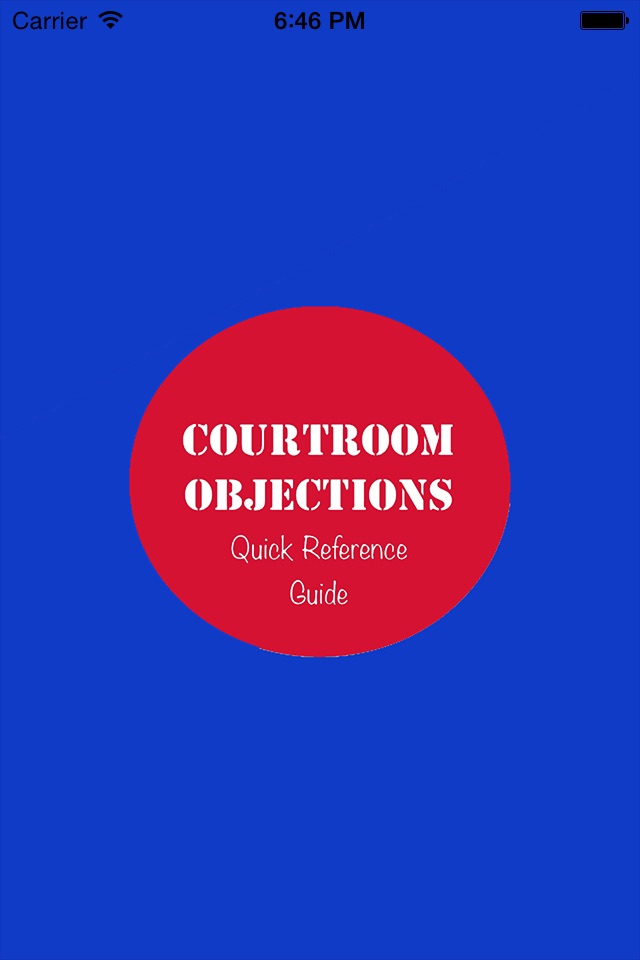
A quick guide to making and responding to objections in court.
A list of common objections and responses.
Use to review by objection category (form of question or admissibility).
Get an edge with this handy guide to making and responding to objections effectively.
Stay informed with regular updates reflecting the latest legal changes and amendments.
Improve your knowledge and performance with quick references.
Enhance your understanding of state-specific legal nuances.
Ideal For:
Lawyers & Attorneys, Paralegals, Law Students, Legal Scholars, Judges and Judicial Staff. Also easy to understand objections examples for any Pro-Se litigant.
Categorized Review: Easily navigate through objections by categories such as form of question or admissibility. With experience and practice this systematic approach enhances your ability to quickly recall and apply the right objection.
A list of the objections by categories include the following:
Authentication, Best Evidence,Bolstering, Character,Character-Other,Character-Specific,Compromise/Offer,Conclusion-Expert,Conclusion-Lay,
Confusion,Cross-examination,Cumulative,Competency,Expert,Habit evidence,Hearsay,Hearsay Exceptions,Irrelevant,Medical payment,Prior Statement
Privileged,Religious Belief,Sexual Conduct,Remedial Measure,Summaries
Form Objections: Ambiguous,Argumentative,Asked & Answered,Assumes Facts,Compound,Confusing,Harassing,Leading,Leading-Direct,Leading-Cross,Narrative,Repetitious,Unintelligible
Quick Reference Tool: Designed for ease of use and rapid reference, this app gives you the necessary information at your fingertips.
The included States are listed below:
Alabama
Alaska
Arizona
Arkansas
Colorado
Connecticut
Federal Rules
Florida
Georgia
Illinois
Indiana
Louisiana
Maryland
Massachusetts
Michigan
New Jersey
New York
North Carolina
Ohio
Pennsylvania
Texas
Utah
Washington
Wisconsin
The information contained herein is not legal advice nor should it be construed as such. Attorneys should refer to the Federal Rules of Evidence or applicable state rules governing the practice of law and State Rules of Evidence. By using this product, no attorney-client relationship is created by the provider and owner of this guide.



